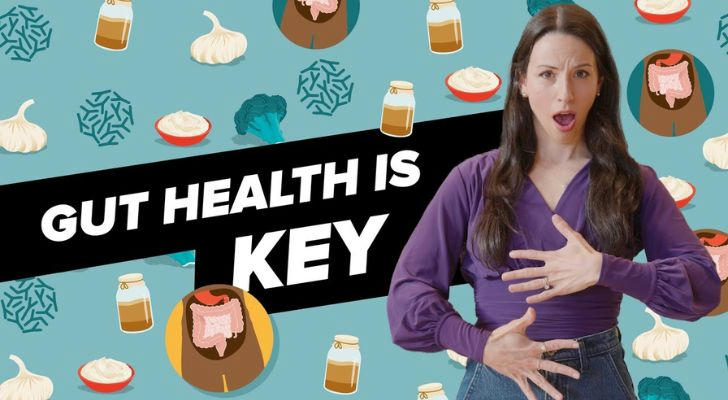Gut Health & Weight Management: How to Adjust Gut Bacteria for Better Weight Loss
Maintaining a healthy weight isn’t just about counting calories or spending hours in the gym. Science now shows that the gut plays a major role in weight management. Inside the digestive system, trillions of bacteria work behind the scenes, influencing metabolism, digestion, and even hunger levels. Some bacteria promote fat storage, while others help burn calories efficiently. So, can adjusting gut bacteria help with weight loss?

1. The Gut-Weight Connection 🧬
Research suggests that gut bacteria affect weight in surprising ways. A study from Harvard University found that overweight individuals tend to have a different balance of gut bacteria compared to lean individuals. Specifically, people with more Firmicutes bacteria tend to absorb more calories from food, while those with more Bacteroidetes bacteria process food more efficiently and store less fat.
🔬 Supporting Data:
A study published in Nature found that people with a higher ratio of Firmicutes to Bacteroidetes extracted 15% more calories from the same meal compared to those with a healthier balance.
A 2021 review in The American Journal of Clinical Nutrition found that individuals with diverse gut bacteria had a 22% lower risk of obesity compared to those with limited gut diversity.
This means that two people can eat the same meal, but their bodies may handle the calories differently based on gut bacteria composition.
2. How Gut Bacteria Influence Weight Loss 🏋️♂️
Here’s how gut bacteria can make weight loss easier (or harder):
Hunger & Cravings Control 🍕
Certain bacteria impact hunger hormones like ghrelin and leptin. When the gut microbiome is unbalanced, cravings for sugar and unhealthy foods increase. A study from King’s College London found that individuals with poor gut diversity had higher cravings for processed carbs.
Fix It: Increase fiber intake! Fiber feeds good bacteria and reduces sugar cravings. Foods like oats, lentils, and chia seeds work wonders.
Metabolism Boost 🔥
Some gut bacteria help extract energy from food efficiently, leading to better metabolism. Lactobacillus and Bifidobacterium strains have been linked to improved fat burning. A study from The British Journal of Nutrition found that women who took Lactobacillus rhamnosus lost 50% more weight than those who didn’t.
Fix It: Include fermented foods like yogurt, kimchi, and kefir to introduce these helpful bacteria.
Inflammation & Belly Fat 🚫
Unhealthy gut bacteria can trigger inflammation, leading to insulin resistance and fat accumulation, especially around the belly. Chronic inflammation is linked to obesity and metabolic disorders. A study published in Cell Metabolism found that reducing gut inflammation led to an 8% decrease in body fat over 12 weeks.
Fix It: Eat anti-inflammatory foods like turmeric, green tea, and leafy greens.

3. Steps to Fix Gut Bacteria for Better Weight Loss ✅
Feed the Good Bacteria with Prebiotics 🥦
Prebiotics are like fertilizer for good bacteria. They help beneficial microbes grow and improve digestion.
💡 Top Prebiotic Foods:
Bananas 🍌
Garlic & onions 🧄
Asparagus 🌱
Whole grains 🌾
ncrease Probiotic Intake 🥛
Probiotics introduce more beneficial bacteria to the gut. A 2019 study in Obesity Reviews found that daily probiotic intake reduced body weight by 3-5% over 12 weeks.
💡 Top Probiotic Foods:
Yogurt 🥄
Kimchi & sauerkraut 🥬
Miso & tempeh 🍱
Reduce Artificial Sweeteners & Processed Foods ❌
Artificial sweeteners disrupt gut bacteria and can lead to higher blood sugar levels. A study in Nature found that sweeteners like aspartame and sucralose negatively alter gut bacteria and increase fat storage.
💡 Better Alternatives:
Replace diet sodas with sparkling water
Choose natural sweeteners like honey or stevia
Get Enough Sleep & Manage Stress
Poor sleep and stress harm gut health. A study from The Journal of Gastroenterology found that sleep-deprived individuals had a 30% higher level of harmful gut bacteria.
💡 Quick Tips:
Sleep at least 7-8 hours per night
Try meditation or light exercise to reduce stress

4. Real-Life Example: How Gut Health Helped Sarah Lose 25 Pounds 🎯
Sarah, a 38-year-old teacher, struggled with weight loss for years. She tried dieting but always regained the weight. After learning about gut bacteria, she changed her approach. Instead of extreme dieting, she focused on eating more fiber, fermented foods, and prebiotics. She also cut out artificial sweeteners and improved her sleep.
🔹 Results:
Lost 25 pounds in 4 months
Had fewer cravings and more energy
Felt less bloated and more confident
5. Key Takeaways 📌
✅ Gut bacteria affect weight by influencing metabolism, hunger, and fat storage.
✅ A higher ratio of Bacteroidetes to Firmicutes supports weight loss.
✅ Prebiotics and probiotics improve gut health and aid weight management.
✅ Avoid artificial sweeteners, processed foods, and stress for a balanced gut.
✅ Small changes like adding fiber, fermented foods, and sleeping better can make a huge difference!
By adjusting gut bacteria, weight loss becomes more natural and sustainable. It’s not about eating less—it’s about eating right for the gut. Start making small changes today and let gut bacteria do the hard work! 🎯
